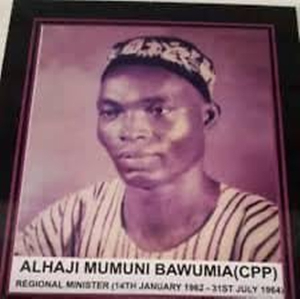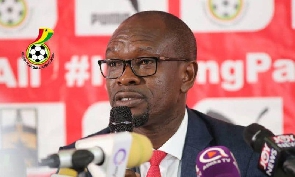Literacy is lifelong learning and plays a foundational role in the creation of sustainable, prosperous and peaceful societies.
In fact, the highest education is that which does not only gives all information or knowledge but harmonize our lives with all existence. Thus, making us fit into the society and to be able to move along with the changing trends of the society and the world at large.
Literacy is a key driver for sustaining development in societies. Additionally, literacy skills are prerequisite for the learning of a broader set of knowledge skills, attitudes and values required for creating sustainable societies.
According to the Director-General of UNESCO, Irivia Bokova, Celebrating Literacy Day is an opportunity to remember a simple truth: "Literacy not only changes lives, it saves them”
It is on this note that the theme: “Literacy and Sustainable Societies” for 2015 is a welcome one and should be used in exploring critical links and synergy between literacy and the future sustainable development goals in societies. Countries are urged to redouble their efforts both politically and financially to ensure that literacy is fully recognized as one of the most powerful accelerators of sustainable societies.
The future of societies starts with the learning of alphabets in order to communicate well with members. According to the Global Monitoring Report (GMR), today a total of 781 million adults in the world are still illiterate: two-thirds of them (496 million) are women. Among the youth, 126 million are illiterate, of which 77 million are female.
Since 1965, when UNESCO declared September 8 as International Literacy Day (ILD), schools, organizations and communities around the world have united to promote awareness with the hope to one day eradicate this ongoing human rights violation. The truth is that providing all women with a primary education would reduce child mortality by a sixth and maternal deaths by two thirds according to GMR report. The report added that, it will enable children to live their lives too: and there will be 15% fewer children married under the age of 15.
According to 2013/14 Global Monitoring Report, there is the undeniable evidence of the links between education and reducing hunger, preventing diseases and escaping poverty. The GMR has also identified a global learning crisis fuelled by too few classrooms and well-trained teachers which has left at least 250 million children still not learning the basics, whether they have spent four years in school or not.
Poor quality education is leaving a legacy of illiterate societies with increase social vices more widespread than previously believed: one in four young people is unable to read a single sentence which is equivalent to 175 million youth. The GMR has projected that it will take until 2072 for all the poorest developing countries to be literate.
In a related development, it has been identified by the GMR, that Adult literacy is languishing too.
Population growth, ineffective literacy campaigns, under-investment in adult literacy programs and inappropriate language offerings have contributed to this tepid progress. In addition, many societies, communities and workplaces do little to encourage literacy and motivate learners to development and sustain their literacy skill.
However, to transform this scenario the state, NGO’s and the society at large must all be committed with their task as done in other countries like Bangladesh where from 1990 until 2012, adult women’s literacy rose from 26% to 55% while in Ethiopia, the share of young people who where literate increase from 34% to 52% in 2007 (GMR).
Thus, improving literacy skills among the people in a society is a cornerstone for improving individual’s capabilities and resilience and achieving economic growth, social development and environmental protection leading to the creation of sustainable, prosperous and peaceful societies. In the words of Kofi Annan, “Literacy is a bridge from misery to hope” within societies. In other words, no society can sustain itself without education.
To better track and improve on educational inequalities, there should be improvement in the existing educational information or data sources. Thus, including school censuses and surveys, learning assessments, household surveys and population censuses by or through the review of questionnaire contents, improving measures of socio economic status and other background characteristics and reforming approaches to sample design to better identify disadvantage groups. There is the need for us to emphasize the importance of improving on how we identify and respond to the needs of all marginalized groups, whether due to poverty, gender, location or disability.
According to a 2014 United States of American Intelligence report posted on facebook, literacy rate in Ghana stands at 76.6% with male ratio of 82% while female is 71.4% indicating ages between 15 and over who can read and write. It is equally true that an enlightened populace helps to sustain their societies by facilitating peace and development as many people learn to understand the essence of peaceful co-existence and strive towards its achievement. It facilitates easy resolution of conflicts which is destructive to individual survival, societal empowerment and natural development.
The role of NFED in providing literacy for sustainable societies is very crucial to the country as a literate is able to contribute meaningfully to social growth. Poverty, disease and ignorance in the society are all ramifications of illiteracy and essential ingredient of underdevelopment. People with low level of literacy in society are easily swayed from the truth and manipulated.
It is therefore very important for all Ghanaians, especially non-literates to be equipped with knowledge through functional literacy as this will make them more discerning and independent minded within the society and the country at large, thereby enhancing meaningful decisions that will lead to progress and sustainable societies.
However, successful implementation of NFLP will depend on the involvement of all relevant stakeholders’ organizations since the tentacles of the programme are broad and cover all areas of society. When people are provided with literacy, they are able to contribute towards their society, become good citizens, improve on economic productivity, maintain social stability and promote peaceful co-existence among others within the society.
For society to be sustained, enjoy peace and development, literacy programs must be incorporated into the lives of the people.
This statement is released by Non-Formal Education Division (NFED) of the Ministry of Education (MoE) on the occasion of the celebration of the International Literacy Week, 2015.
Opinions of Wednesday, 9 September 2015
Columnist: Twumasi, Patrick















